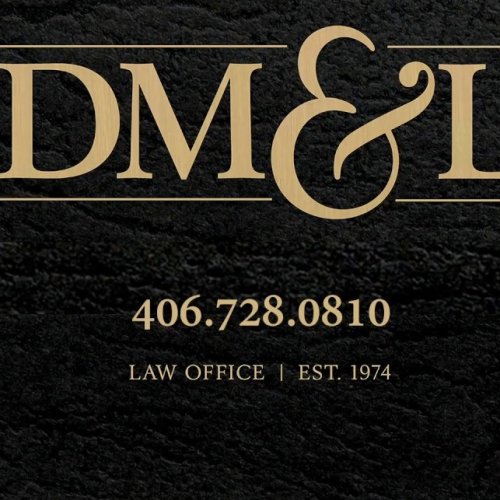Best Lawsuits & Disputes Lawyers in Hamilton
Share your needs with us, get contacted by law firms.
Free. Takes 2 min.
List of the best lawyers in Hamilton, United States
About Lawsuits & Disputes Law in Hamilton, United States
In Hamilton, United States, lawsuits and disputes law encompass a wide range of legal matters. These can include contract disputes, personal injury claims, property disputes, disputes between landlords and tenants, family disputes, and disputes involving estates, among others. The legal system in Hamilton follows the common law system practiced across the United States, where rules and their interpretation can be influenced by precedents set in prior cases.
Why You May Need a Lawyer
The need for a lawyer is often realized during contentious situations such as disagreements over contracts, disagreements with neighbors regarding property boundaries or noise issues, and disputes with service providers or merchandise sellers. Additionally, suing someone for damages or being sued can also necessitate the need for legal representation. Furthermore, a lawyer's help can be invaluable in navigating through complex legal processes and effectively protecting your rights and interests.
Local Laws Overview
Hamilton's local laws for disputes and lawsuits are largely harmonized with Ohio state law and federal law. For instance, contract disputes are bound by the Ohio contract law, while landlord-tenant disputes are guided by the Ohio Landlord-Tenant Law. Broadly, many disputes must go through a process of negotiation or mediation before they can be taken to court. Some lawsuits may need to be filed within certain deadlines known as statute of limitations. Understanding these nuances could be critical, and a Hamilton-based lawyer could guide you effectively.
Frequently Asked Questions
Can I represent myself in a lawsuit?
Yes, you can represent yourself in a lawsuit. However, the law and court procedures can be complex, and a lack of understanding may negatively impact your case.
What's the statute of limitations in Hamilton?
The statute of limitations varies depending on the nature of the case. For example, personal injury cases typically have a two-year limitation period in Ohio.
Do all disputes end up in court?
No, not all disputes end up in court. Many disputes can be resolved through alternative dispute resolution methods like negotiation, mediation, or arbitration.
What’s the role of a lawyer in a dispute?
A lawyer can provide legal advice, guide you through the court process, represent you in court, and work to secure the best outcome for your case.
How do I find a reputable lawyer in Hamilton?
You can use online law firm directories, consult the Ohio State Bar Association, or seek recommendations from people who've had similar legal issues.
Additional Resources
Aside from engaging a lawyer, you can access the local courthouse’s self-help resources or non-profit organizations like Legal Aid of Western Ohio. Look into the Ohio State Legal Services Association and the American Arbitration Association for more services. Always consult reliable legal resources or professionals when dealing with lawsuits and disputes.
Next Steps
If you believe you need legal assistance with a lawsuit or dispute, begin by identifying the nature of your matter. Research and gather all relevant documents and evidence. Next, consider consulting with a lawyer specializing in your type of dispute. Your initial meeting can be a good time to discuss the case in detail, understand possible outcomes, and query about fees and expected duration.
Lawzana helps you find the best lawyers and law firms in Hamilton through a curated and pre-screened list of qualified legal professionals. Our platform offers rankings and detailed profiles of attorneys and law firms, allowing you to compare based on practice areas, including Lawsuits & Disputes, experience, and client feedback.
Each profile includes a description of the firm's areas of practice, client reviews, team members and partners, year of establishment, spoken languages, office locations, contact information, social media presence, and any published articles or resources. Most firms on our platform speak English and are experienced in both local and international legal matters.
Get a quote from top-rated law firms in Hamilton, United States — quickly, securely, and without unnecessary hassle.
Disclaimer:
The information provided on this page is for general informational purposes only and does not constitute legal advice. While we strive to ensure the accuracy and relevance of the content, legal information may change over time, and interpretations of the law can vary. You should always consult with a qualified legal professional for advice specific to your situation.
We disclaim all liability for actions taken or not taken based on the content of this page. If you believe any information is incorrect or outdated, please contact us, and we will review and update it where appropriate.
Browse lawsuits & disputes law firms by service in Hamilton, United States
Hamilton, United States Attorneys in related practice areas.








